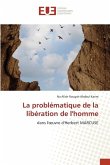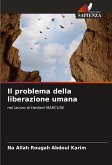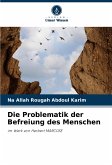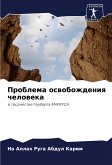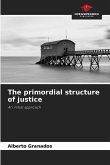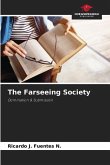This work deals with the conditions of possibility for human liberation from societies with advanced capitalism. The search for ways to liberate man from the culture of alienation and domination has led me to examine a number of problems associated with today's societies. The problem of liberating man from contemporary society is not possible without careful, critical examination. Such an issue is imperative as long as domination and exploitation of man continue to exist in modern and contemporary societies. This book will attempt to answer the following questions: Is there a possible origin for today's societies? What were the decisive stages in the birth of modern and contemporary societies? Can we pinpoint the causes of human domination and alienation? How do people relate to each other? How does a one-dimensional society exploit the individual? Is there any alternative to the individual being free today? What are the faults of modern and contemporary society? Is solidarity not an alternative?
Bitte wählen Sie Ihr Anliegen aus.
Rechnungen
Retourenschein anfordern
Bestellstatus
Storno




